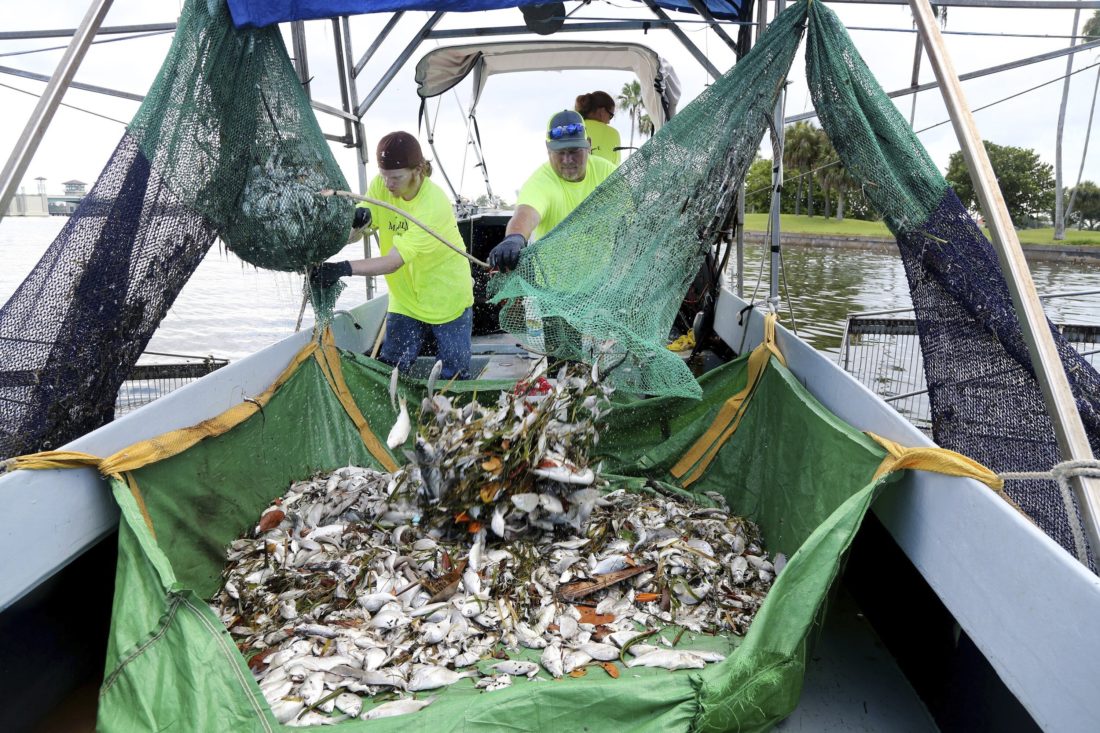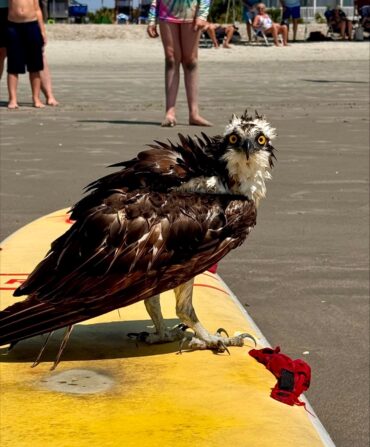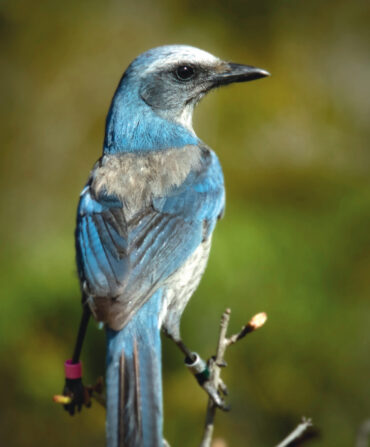I was driving to Homosassa for three days of tarpon fishing when I heard on the radio about an ongoing and massive die-off of Florida’s manatees. The report was horrifying. From January 1 to July 16 of this year, 866 manatees died in Florida. That’s the highest number on record. Most of the deaths occurred in the Indian River Lagoon, the famed estuary that sprawls from Cape Canaveral to Stuart and encompasses one-third of the state’s East Coast. The Indian River Lagoon is subject to massive toxic overflows from Lake Okeechobee and ungodly amounts of runoff from development and septic systems, among other ills, and it has lost most of its natural seagrass beds. Manatees eat seagrass. In the last seven months, one out of seven Florida manatees has died, mostly from starvation.
I was stunned. Starving manatees? By the hundreds? I stopped the truck and sat with the engine running, sick to my stomach, trying to shake the image of a manatee foraging on a barren bay bottom, desperate for food.
It’s not that I’m unaccustomed to Florida’s water woes. I follow the state’s environmental struggles closely. But for the love of Marjory Stoneman Douglas, how much worse can things get?
I didn’t have to wait long for the answer, courtesy of the latest red tide.
At this point, it almost seems futile spinning out the grim figures. Karenia brevis, the one-celled organism that creates toxic red tide, occurs naturally at background levels that are harmless to sea life. But natural balance is a chimera on the Florida coast these days. Tampa Bay has been enveloped in its worst red tide ever. In Pinellas County, where St. Petersburg is located, more than 600 tons of dead fish have been picked up off beaches and waterways in the last month.
My Instagram feed—populated by fishing guides and waterkeepers and Everglades lovers—has become a cesspool of death and putrification. More bleak texts and emails arrived from Florida friends. And it’s not even the peak of red tide season yet.
The challenge in Florida is that fingers of blame can be pointed, with reason, in too many directions. Are the horrific water quality issues a consequence of the decades-long siphoning off of the freshwater flows that feed the Everglades to water industrial sugar cane plantations? Is it the herbicides sprayed in Florida waterways to kill weeds? Failing septic systems? Overwhelmed municipalities with aging wastewater treatment plants? Homeowners who treat their lawns with poison in exchange for a carpet of green as natural as Velveeta? Yes, yes, and yes to all.
And the result of every finger pointed in every direction is near paralysis on progress. Though Florida has taken some significant steps recently to address water quality issues, mainly in the effort to send more water south to rewater the Everglades, much more must be done for any reasonable hope of seeing red tides, belly-up tarpon, and starved manatees in the rearview mirror instead of on top of my news feed.
One hammer that will fall, sooner or later, is purely economic. Tourism is an $85 billion industry in Florida. Every bonefish in the state returns about $3,500 in economic benefits to Florida each year, according to a study produced by the University of Miami. Without clean water, it can’t be long before the conversation about a family vacation, flyfishing trip, or Keys getaway will necessarily involve a calculation of risk: Will folks be willing to chance a deposit on a beach cottage or flats guide on what appears to be the increasingly likely possibility that polluted, near-toxic water will cloak the Florida coasts? How close are we to the point when that has to be a part of the decision-making process? Like hurricane season. And Florida already has one of those.
I don’t have all the answers. But I do know that I dream of Florida. When my wife and I imagine our future, a common thread runs through the vision: More Islamorada. More Everglades. More Bahia Honda. More Pine Island Sound. More Homosassa Springs. (Fear not, permanent license plate holders, our typical MO is to camp, spend all our money on booze, fishing guides, and highway tolls, then return home and leave you in peace.)
But that also means I’m part of the problem, with my own occasional visits involving peeing and pooping and spewing contrails of carbon pollution behind my truck tailpipe or whatever flats skiff I’m on. In fact, everyone who travels to Florida is part of the problem. Even if all you’ve ever done is drained Duval Street daiquiris, a little bit of this is on you.
The corollary to that is this: Everyone who travels to Florida can, and should, commit to being part of the solution. Now. Loudly. With whatever influence you have. Florida’s water woes are an existential threat to a place that infuses all of the South with its tenacious wildness and its still-present beauty. And this is as much a disaster relief effort as an environmental cause. Our friends and neighbors in the Sunshine State are suffering a terrible toll, both economically as well as on their own mental health and psychic welfare.
What truly afflicts this incredible state is what afflicts us all: The 21st century version of apathy. Our click-through mentality. Our tendency to breeze by and scroll through the ills of our time.
I don’t know how to heal Florida. But there are things I can do: Join. Engage. Write. Lament.
Ask yourself: What can you do?
Thankfully, groups in Florida are fighting the good fight for clean water. Here’s my go-to list of organizations on the front lines. Right now, they need all the help they can get.
Follow T. Edward Nickens on Instagram @enickens.








